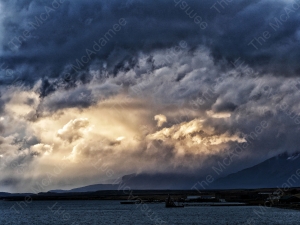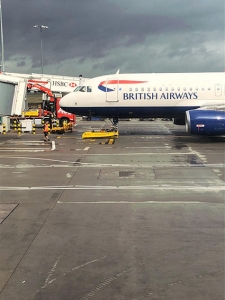VACCINATIONS, VACANCIES AND VACATIONS
Potentially great news. Beware false dawns. The good news is a range of vaccines are now emerging from the necessarily thorough testing stage.
Covid vaccination progress
The International Air Transport Association (IATA) released guidance on 16 November “to ensure that the air cargo industry is ready to support the large-scale handling, transport and distribution of a COVID-19 vaccine. IATA’s Guidance for Vaccine and Pharmaceutical Logistics and Distribution provides recommendations for governments and the logistics supply chain in preparation for what will be the largest and most complex global logistics operation ever undertaken”.

“Delivering billions of doses of a vaccine that must be transported and stored in a deep-frozen state to the entire world efficiently will involve hugely complex logistical challenges across the supply chain. While the immediate challenge is the implementation of COVID-19 testing measures to re-open borders without quarantine, we must be prepared for when a vaccine is ready. This guidance material is an important part of those preparations,” said IATA’s Director General and CEO, Alexandre de Juniac.
But how long will it take for the travel infrastructure to revive? One of my favourite tour companies, Llama travel has a realistic view of the future:
“Although the current Covid situation is still ongoing, the positive vaccine news, and the opening up of borders in Latin America and Africa, means that we can all start looking to the future with a bit more hope, and maybe start thinking again about plans that have been put on hold.” www.llamatravel.com
Hotels
Recent research by PwC (undertaken before the latest lockdown) highlights the challenges facing UK hotels which is no doubt being replicated worldwide. In their UK Hotels Forecast 2021 they see a volatile outlook into 2021. PwC suggest “In the bleakest outlook since benchmarking began, hotel occupancy rates in 2021 are forecast to be 55% across the UK and could take four years to return to pre COVID-19 levels. This is a stark reality for a once optimistic industry, which had seen a decade of growth.
Given the large number of uncertainties around COVID-19 restrictions, forecasting hotel trends is extremely challenging. The availability of a vaccine that can be quickly and widely administered is key to demand recovery coupled with consumer confidence to travel”. www.pwc.com
Travellers
The Airports Council International (ACI) 2020 ASQ Global Traveller Survey found that “48% of travellers considered themselves likely to travel within the next three months but, despite this eagerness, the recovery is dependent on a multitude of factors”. Significantly, passengers expect that new measures will have been put in place to address health risks, including mandatory masks for passengers and staff, Covid-19 testing prior to the trip, hand sanitizing stations, and the development of a more contactless airport experience”.
My guess is that despite the potential desire to travel we are all now savvier about the complexities of Covid and containing the virus. Desire is one thing – actually travelling is another.
Airlines
Getting to your chosen destination is no longer straightforward. And airline balance sheets are still heading south. The BBC reported that “Struggling airline Norwegian Air faces a battle for survival after the Norwegian government said it would not provide further backing. Extra loan guarantees would be too “risky” and “not defensible”, the country’s government said. The airline said it faced a “very uncertain future” with “ventilator support” needed to survive the winter. Norwegian Air said in August it would run out of money in the first quarter of 2021 without extra cash. The airline, which like the rest of the sector has been hit hard by the coronavirus crisis and has grounded most of its fleet, has been holding talks with the government to try to gain more backing”. And Norwegian is by no means unique…
…and on Monday 16 November, Korean Air Lines Co., South Korea’s biggest carrier, said that it will buy its smaller local rival Asiana Airlines Inc. in a deal valued at 1.8 trillion won (US$1.62 billion) that would create the world’s 10th-biggest airline by fleets.
Airports

Heathrow Airport’s CEO reported on 11 November: “Aviation is the lifeblood of the UK’s economy, critical for exports of goods and services and imports of vaccines, as well as inbound tourism, students and foreign direct investment. Lack of Government action is weakening our sector, making it harder for us to support the eventual economic recovery and help deliver the Prime Minister’s vision of a global Britain.” The airport has suffered a traffic drop of 82% YOY, with cargo volumes down 23%.
The CEO argued that the “UK’s aviation industry is essential to the supply chain of temperature-sensitive, time-critical goods like vaccines – 41% of the UK’s pharmaceutical supplies are imported via Heathrow alone. Lack of Government action is weakening our sector, making it harder for us to support the eventual economic recovery and help deliver the Prime Minister’s vision of a global Britain. The lack of a testing regime has left British airports unable to compete with EU rivals, the refusal to offer English and Welsh airports business rates relief runs the risk of worsening an already challenging situation and the plans to end VAT-free shopping threatens to kick our industry when its down”.
Stuart McAdam
TheMcAdamee ~ Covid Vaccination Progress ~